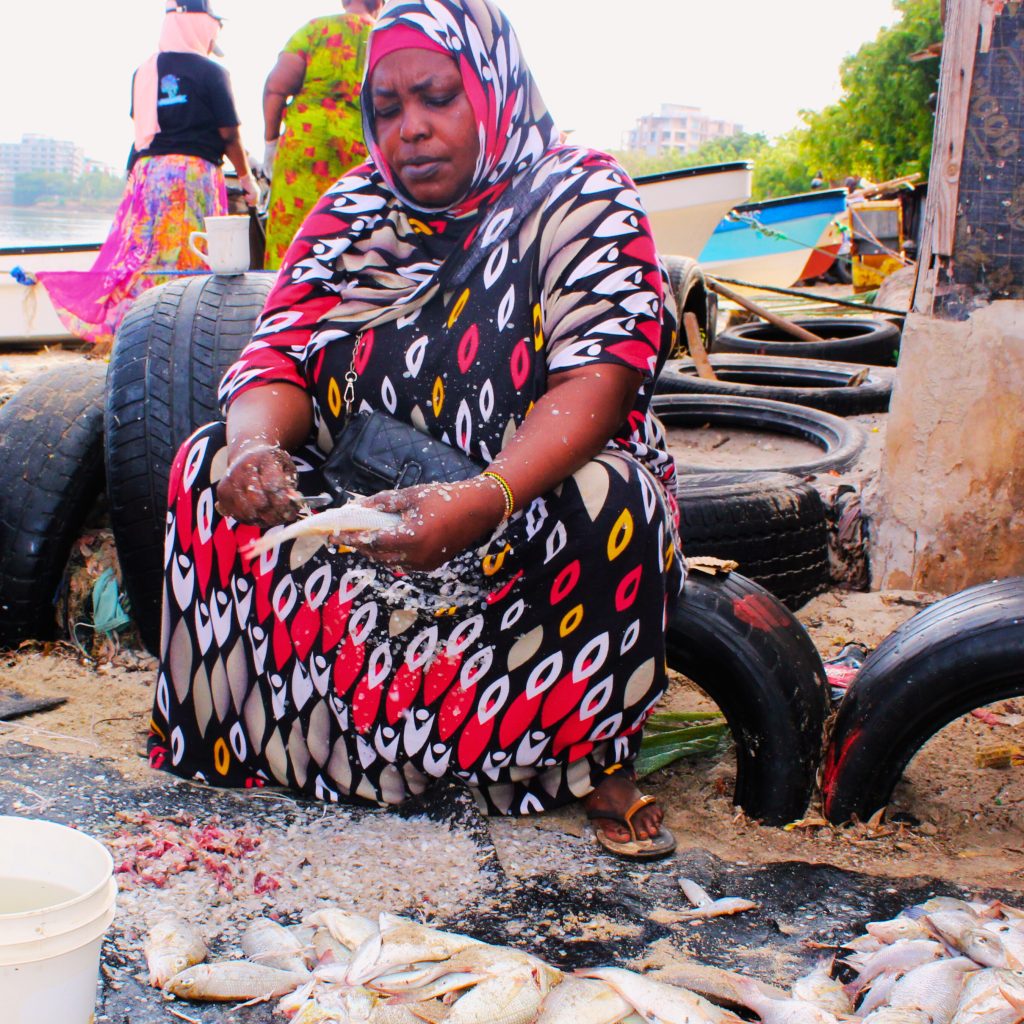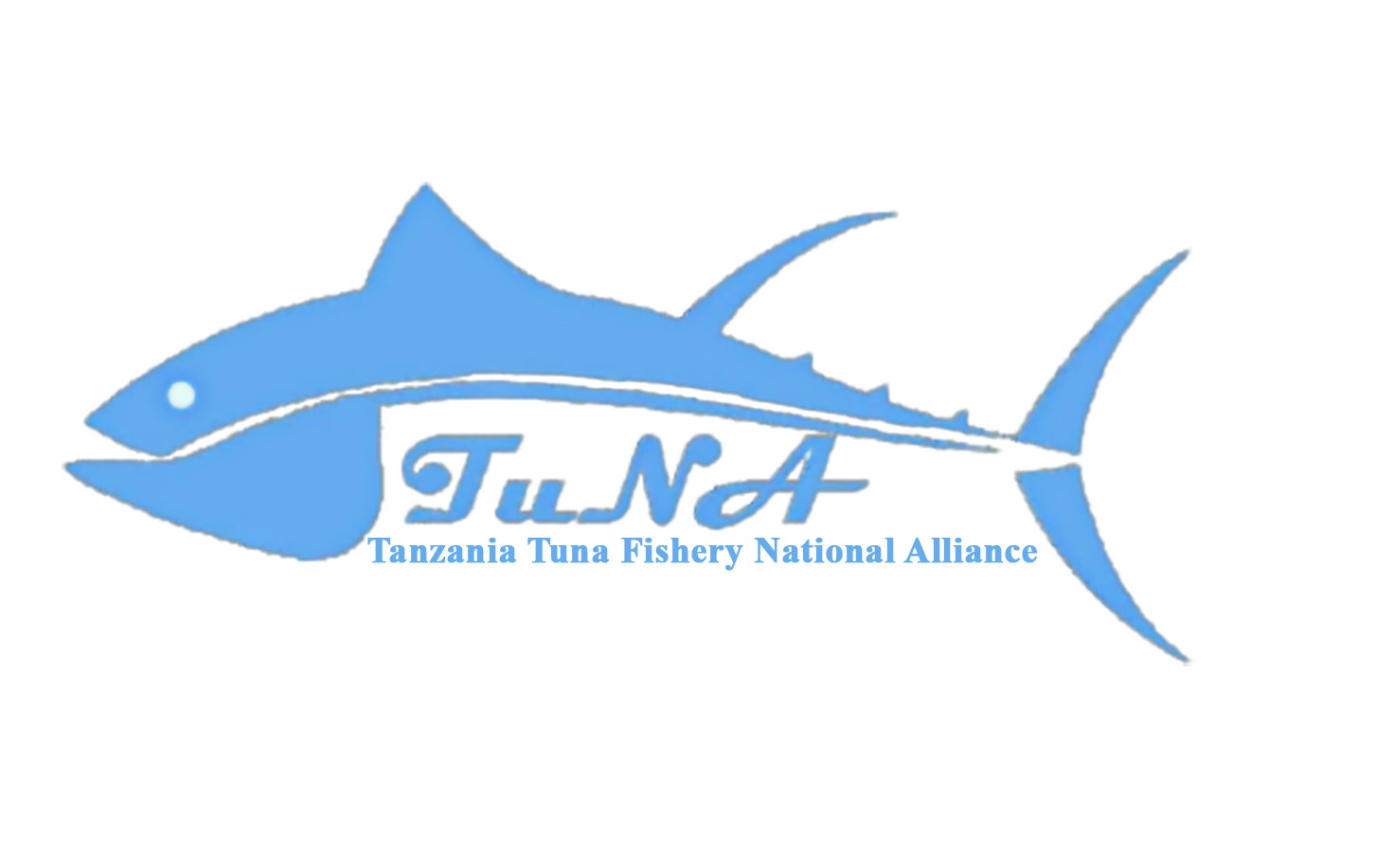
Empowering Women in Fisheries:
By Tuna Alliance.
On March 8, 2025, the Tuna Alliance marked International Women’s Day with a transformative event at Msasani Beach Market. This event, dedicated to raising awareness of women’s contributions to the fisheries value chain and blue economy sector, combined community engagement with environmental responsibility.
Beach Cleaning Initiative: A Call for Environmental Stewardship
One of the key activities of the event was a large-scale beach cleaning exercise. This initiative sought to address the alarming levels of waste accumulating along the Msasani Beach Market, which not only pose environmental hazards but also affect the livelihoods of many women working in the fisheries sector. At least 100 volunteers, including local fish traders, environmental activists, and community members, participated in the cleanup.
By the end of the exercise, approximately one ton of waste had been collected. The waste consisted of plastic bottles, fishing nets, food packaging, and other discarded materials, highlighting the urgent need for sustainable waste management solutions. The Tuna Alliance emphasized the importance of waste segregation, recycling, and responsible disposal, aiming to instill long-term environmental consciousness among the local community.
Women at Msasani Fish Market: The Backbone of the Blue Economy.
The event also shed light on the daily efforts of women who play a critical role in the fisheries sector at Msasani Fish Market. These women, despite facing numerous challenges, contribute significantly to the local economy through various activities.
- Fish Sellers: These women wake up early in the morning to buy fresh fish from fishermen and sell them to customers. They struggle with price fluctuations, lack of storage facilities, and competition from large-scale traders.
- Fish Cleaners: Working tirelessly to prepare fish for sale, these women often face health risks due to prolonged exposure to cold water and unsanitary conditions.
- Charcoal Sellers: Essential in the fish processing chain, charcoal sellers supply the fuel needed for smoking and drying fish. However, they encounter difficulties such as rising charcoal prices and environmental concerns about deforestation.
- Plastic Collectors and Sellers: With plastic waste being a major issue, some women have turned to collecting and selling plastic waste as an alternative income source. Despite this, they earn very little due to limited recycling infrastructure.
- Sea Shells Fishers: Gathering sea shells for sale in local markets or for crafting souvenirs, these women face diminishing supplies due to environmental degradation and unsustainable harvesting practices.
Challenges and How Tuna Alliance Supports Women in Fisheries
Women in the fisheries sector face a range of challenges, including low wages, unsafe working conditions, and limited access to financial and technical support. Additionally, gender inequality remains a barrier, with women often excluded from decision-making processes in the industry.
To address these issues, the Tuna Alliance has launched several awareness-raising programs aimed at empowering women in the blue economy sector. These programs provide training on sustainable fisheries practices, business management, and financial literacy. Moreover, the Alliance advocates for improved working conditions, better access to resources, and policies that promote gender equality in the industry.
Impact of Tuna Alliance Events on Women in Fisheries and the Blue Economy
Through events like the International Women’s Day celebration, the Tuna Alliance has made significant strides in equipping women with knowledge and skills to thrive in the fisheries sector. The training sessions held during the event covered key topics such as:
- Sustainable fishing and waste management
- Financial independence and business expansion
- Health and safety precautions in fish handling and processing
- Advocacy for women’s rights in the fisheries sector
These initiatives have not only helped women improve their economic status but also strengthened their role in environmental conservation, ensuring the sustainability of the fisheries industry for future generations.
The International Women’s Day event at Msasani Beach Market, organized by the Tuna Alliance and WWF, was more than a celebration. It was a movement towards empowerment, sustainability, and gender equality. The beach cleaning exercise highlighted the need for environmental responsibility, while the recognition of women’s roles in the fisheries sector underscored the importance of supporting and uplifting them.
As the blue economy continues to grow, women must remain at its core, benefiting from fair policies, improved working conditions, and enhanced business opportunities. The Tuna Alliance and WWF remain committed to ensuring that women in fisheries are not only seen but also supported, valued, and empowered for a better future.
